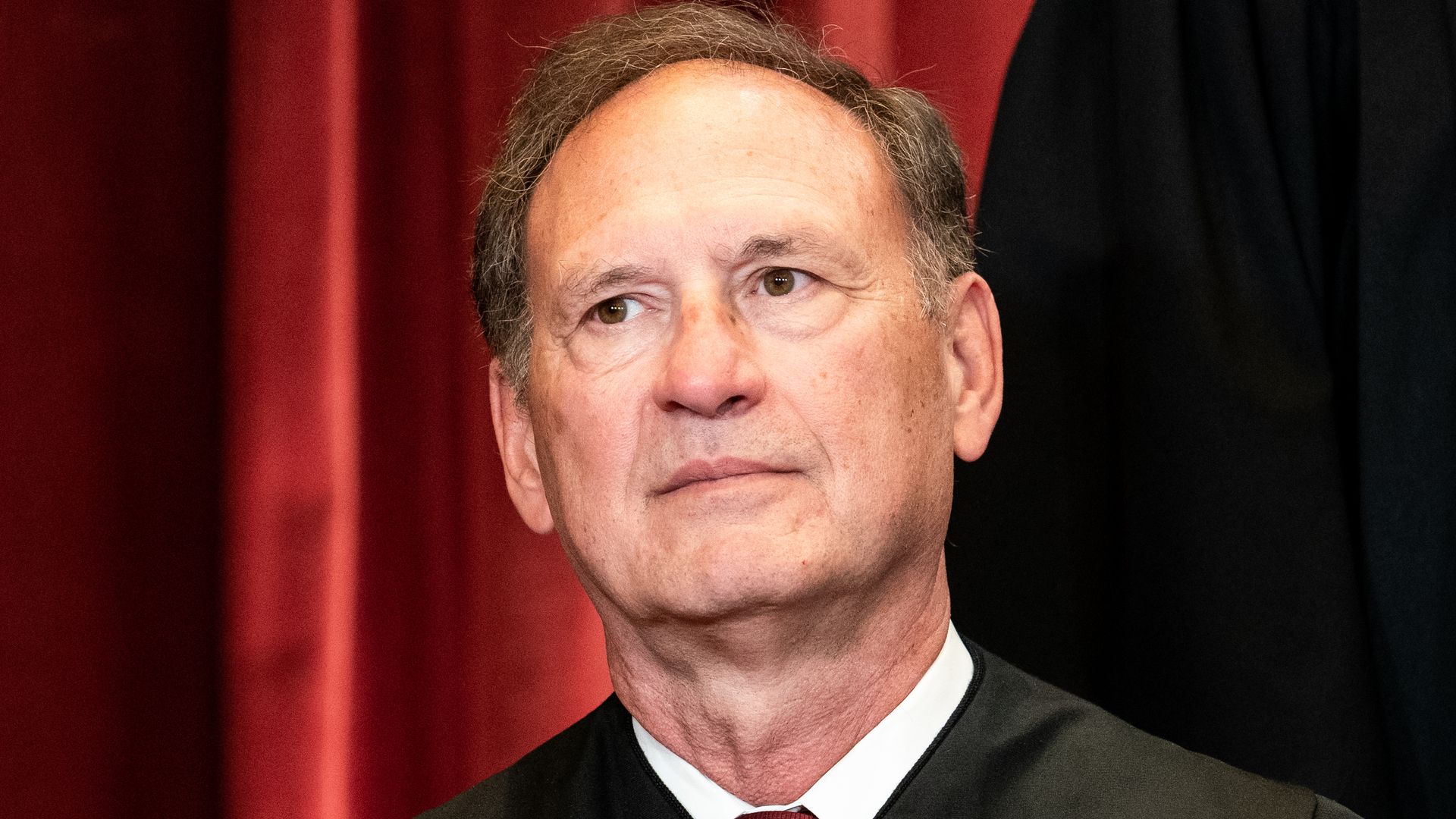
[KARAH RUCKER]
A federal judge committed an ethics violation. The ethics offense in question? He questioned the ethics of another member of the federal bench: Supreme Court Justice Samuel Alito.
A federal appeals court judge ruled that U.S. District Judge Michael Ponsor broke ethics rules when he published an essay in The New York Times.
The essay criticized Justice Alito for displaying flags associated with President-elect Donald Trump’s political causes. The federal appeals court judge found Ponsor violated the code of conduct binding all federal judges *other than* Supreme Court justices. Judges are not supposed to criticize each other publicly.
The code of conduct also requires judges to refrain from politics. Alito is not governed by that code and has denied that his actions signaled support for President-elect Trump.
Alito drew controversy when a New York Times report this spring found he flew an upside-down American flag outside his home in January 2021.
Just days before, supporters of then-President Trump’s “Stop the Steal” movement carried upside down flags in the insurrection on January 6th.
Alito said his wife flew that flag in response to a confrontation with a neighbor at that time. But in later reporting, the neighbor told CNN the conflict occurred about a month after the flag flew upside down.
The Times later reported a second Alito flag incident, when the “An Appeal to Heaven” flag, a Revolutionary War-era flag also embraced by “Stop the Steal” movement supporters, flew outside Alito’s New Jersey beach home in the summer of 2023.
Alito did not respond to the Times when they asked for comment for that story but wrote in letters to members of Congress that the flag was also his wife’s decision.
In his own Times essay, Judge Ponsor wrote that regardless of whether there was political intent, Alito should not have flown either flag.
Doing so, he wrote, “…is viewed by a great many people as a banner of allegiance on partisan issues that are or could be before the court. Courts work because people trust judges. Taking sides in this way erodes that trust.”
But it was Ponsor who the federal appeals court judge found liable. The judge wrote that Ponsor “as a commentary on partisan issues and as a call for Justice Alito’s recusal.”
Under the ethics code governing Supreme Court justices adopted last year, each justice individually evaluates their own conduct.
Alito concluded that his actions did not rise to the code’s standard of a justice needing to recuse when their “impartiality might reasonably be questioned.”
For Straight Arrow News, I’m Karah Rucker.
And for all the latest updates on this and other top stories, download the Straight Arrow News app or visit SAN.com.











